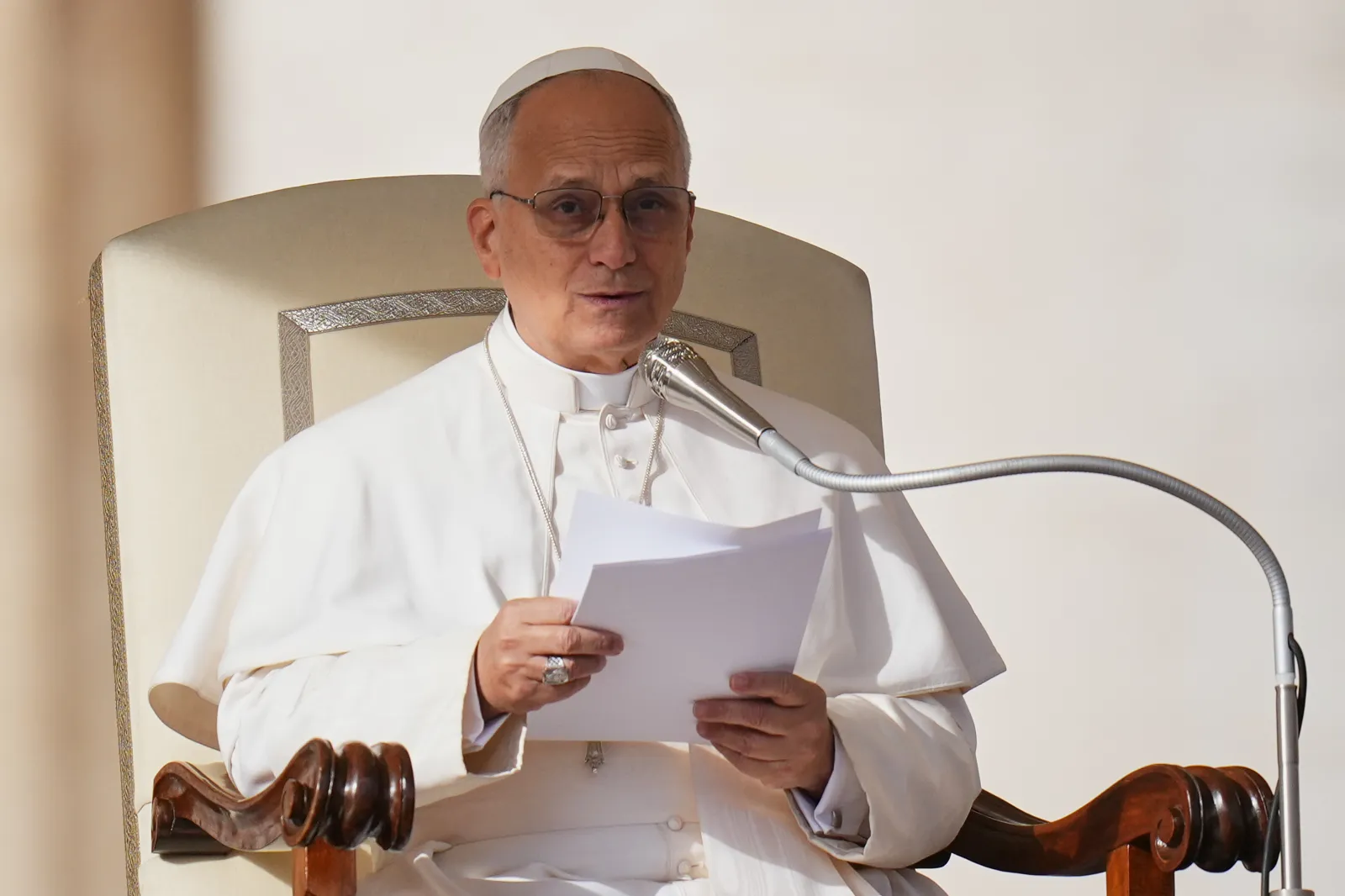 By Amir DaftariShareNewsweek is a Trust Project member
By Amir DaftariShareNewsweek is a Trust Project memberU.S. President Donald Trump said on Thursday that efforts to halt Venezuelan drug trafficking “by land” would begin “very soon,” intensifying tensions with Caracas at a time when Venezuela’s vast oil reserves remain a pivotal factor in global energy and political calculations.
The country holds the world’s largest proven crude deposits, and any future change in production—whether through political shifts, sanctions adjustments or new agreements—could eventually boost global supply, ease U.S. inflationary pressures and strengthen Washington’s leverage in a region increasingly shaped by geopolitical competition.
Why It Matters
The U.S. military buildup in the southern Caribbean, including recent strikes on vessels allegedly carrying narcotics, signals Washington’s willingness to apply pressure on Venezuela. While officially aimed at curbing drug trafficking, Caracas has portrayed the operations as an attempt to exert influence over its natural resources.
Venezuela’s vast oil reserves remain largely underexploited, constrained by political instability, infrastructure challenges, and sanctions. Any shift in access or production could have far-reaching implications for global energy markets, and the combination of political uncertainty and military tension makes the situation highly consequential for Trump’s domestic economic and political agenda.
 ...
...What To Know
“Trade and economics are at the heart of the Trump administration’s policymaking and Venezuela is no different…Removing Maduro would impact drug trafficking and commercial trade, to include oil.” Alex Plitsas, senior fellow at the Atlantic Council, told Newsweek. This strategic calculus helps explain the administration’s July decision to grant U.S. oil giant Chevron, a restricted license to resume limited operations.
The license allows the company to operate joint ventures and export crude while barring payments to the Maduro government, after an earlier license was revoked earlier in the year, forcing Chevron to wind down operations by April. For U.S. policymakers, the license is more than a commercial decision—it represents a tool to preserve access to Venezuela’s vast oil reserves, maintain pressure on Maduro, and support domestic energy stability amid ongoing uncertainty over production capacity. As Plitsas added, “Maduro and his predecessor have run Venezuela‘s economy into the ground despite it being the wealthiest country in South America.”
 ...
...Production capacity and limitations
Venezuela’s oil production has fallen sharply from its early-2000s peak of about 3 million barrels per day to roughly 920,000 today. Output plummeted due to decades of mismanagement, corruption, and expropriations that began under Hugo Chávez and worsened under Maduro. Most of the crude is heavy or extra-heavy, which requires diluents and specialized refining capacity, further constraining the ability to rapidly increase exports.
Even under the best circumstances, production would likely rise only gradually, limiting any immediate impact on U.S. energy markets or global supply. Over the long term, however, a sustained increase in Venezuelan output could help ease fuel and gas costs and provide modest support for domestic inflation and economic growth.
Risks and uncertainties
Even with Venezuela’s vast oil reserves, any potential U.S. control or influence over them comes with high stakes. Trump’s hints at a possible land-based campaign raise the prospect of regime change, a move that could give Washington significant geopolitical leverage. “Removing Maduro would also take out another player in the Russia, North Korea, Iran Axis which has been used for sanctions avoidance and furthering our adversaries’ objectives,” Plitsas said, highlighting how such a shift could disrupt Russia’s regional strategy, challenge China’s influence in Latin America, and weaken Iran’s ties to Caracas.
 ...
...However, turning that leverage into practical control faces major political and logistical challenges. Extracting and exporting Venezuelan oil would require significant investment in production, diluents, and refining, all under a fragile regime.
Speaking to Newsweek, Rosemary A. Kelanic, Director of the Middle East Program at Defense Priorities, warned: “If the U.S. forcibly breaks the Venezuelan regime, we risk unleashing Mideast-like chaos in our own hemisphere. Military action against oil producers makes oil markets jittery and could increase short term oil prices, though probably not by much.”
What happens next
In the coming months, Washington’s strategy toward Venezuela will be closely watched. The U.S. will need to navigate a complex mix of diplomacy, sanctions, and the potential for military pressure to influence Maduro’s regime and Venezuelan oil flows. How Caracas responds could shape global energy markets, regional stability, and U.S. leverage over rivals such as Russia, China, and Iran. Any shift in control or access to Venezuelan crude will take time to translate into tangible benefits for U.S. energy supply and political goals, while missteps could trigger broader instability in the region.
Request Reprint & LicensingSubmit CorrectionView Editorial & AI GuidelinesRecommended For You
 NewsATM Users Can Claim Cash in $1.23M Settlement—No Proof Required3 min read
NewsATM Users Can Claim Cash in $1.23M Settlement—No Proof Required3 min read LifeAdolf Hitler’s Namesake Wins Local Election in Former German Colony3 min read
LifeAdolf Hitler’s Namesake Wins Local Election in Former German Colony3 min read NewsAtlanta’s City-Funded Grocery Stores Should Become National Model: Mayor7 min read
NewsAtlanta’s City-Funded Grocery Stores Should Become National Model: Mayor7 min read NewsIran Boycott 2026 World Cup Draw Over US Visas3 min read
NewsIran Boycott 2026 World Cup Draw Over US Visas3 min read NewsHow a Win in Venezuela Could Be Great News for Trump5 min read
NewsHow a Win in Venezuela Could Be Great News for Trump5 min read NewsCalifornia Uber Driver Shot In Head By Passenger On Thanksgiving1 min read
NewsCalifornia Uber Driver Shot In Head By Passenger On Thanksgiving1 min readRelated Podcasts
Top Stories
 NewsNational Guard Member Sarah Beckstrom Dead After DC Shooting3 min read
NewsNational Guard Member Sarah Beckstrom Dead After DC Shooting3 min read NewsUncommon Knowledge: Trump, Biden and the Real Record of Afghan Vetting5 min read
NewsUncommon Knowledge: Trump, Biden and the Real Record of Afghan Vetting5 min read NewsZelensky’s Chief of Staff Raided As Ukraine Corruption Scandal Escalates4 min read
NewsZelensky’s Chief of Staff Raided As Ukraine Corruption Scandal Escalates4 min read NewsMap Shows Where Significant Snow Will Disrupt Post-Thanksgiving Travel3 min read
NewsMap Shows Where Significant Snow Will Disrupt Post-Thanksgiving Travel3 min read NewsCalifornia Uber Driver Shot In Head By Passenger On Thanksgiving1 min read
NewsCalifornia Uber Driver Shot In Head By Passenger On Thanksgiving1 min read NewsTrump Admin ‘Looking at’ Deporting Rahmanullah Lakanwal’s Family4 min read
NewsTrump Admin ‘Looking at’ Deporting Rahmanullah Lakanwal’s Family4 min readTrending
 New York8 Million Inflation Refund Checks Sent Out Ahead of Thanksgiving4 min read
New York8 Million Inflation Refund Checks Sent Out Ahead of Thanksgiving4 min read WeatherWinter Storm Map Shows Where Up to 12 Inches of Snow Could Strike3 min read
WeatherWinter Storm Map Shows Where Up to 12 Inches of Snow Could Strike3 min read WalmartWalmart Recall Update: Customers Warned ‘Immediately Stop’ Using Products4 min read
WalmartWalmart Recall Update: Customers Warned ‘Immediately Stop’ Using Products4 min read DogsAfter 2 Days at Daycare, German Shepherd’s Return Goes Viral: ‘Never Again’3 min read
DogsAfter 2 Days at Daycare, German Shepherd’s Return Goes Viral: ‘Never Again’3 min read CatholicPope Leo Updates Marriage Rules for 1.4 Billion Catholics3 min read
CatholicPope Leo Updates Marriage Rules for 1.4 Billion Catholics3 min readOpinion
 OpinionAI Is Coming for Our Most Intimate Communications. Congress Must Act | Opinion5 min read
OpinionAI Is Coming for Our Most Intimate Communications. Congress Must Act | Opinion5 min read OpinionConventional Wisdom: The Thanksgiving Tragedies Edition3 min read
OpinionConventional Wisdom: The Thanksgiving Tragedies Edition3 min read OpinionConventional Wisdom: The Anti-Thanksgiving Edition3 min read
OpinionConventional Wisdom: The Anti-Thanksgiving Edition3 min read OpinionHow to Remain Grounded and Thankful Amid the Chaos5 min read
OpinionHow to Remain Grounded and Thankful Amid the Chaos5 min read OpinionThis Thanksgiving, Affordability Isn’t Just About the Turkey. It’s Everyday, Every Bill, Every Choice | Opinion4 min read
OpinionThis Thanksgiving, Affordability Isn’t Just About the Turkey. It’s Everyday, Every Bill, Every Choice | Opinion4 min read
